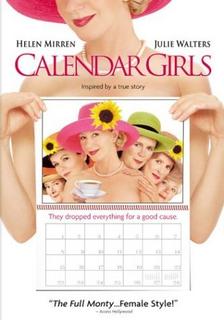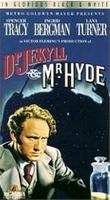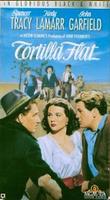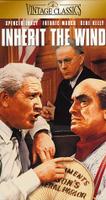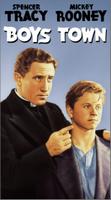One of my favorite recording artists, for quite some time now, has been Polly Jean Harvey. I can't say enough about what a superb and exquisite talent she possesses. There is something about her music that not only "speaks to me" on a number of different levels, but that also makes me "feel" the way that cutting edge music is supposed to make a person feel. And, trust me, there is very little real "cutting edge" music in the world today, even though we seem to be in the middle of a major up-swing in the overall quality of popular recorded music.
If there were a great deal of truly cutting edge music being currently made, I'm pretty sure we would all be "feeling" the effects of that phenomenon. For, as Tuli Kupferberg, that modern day prophet, and member of the seriously cutting edge group, "The Fugs," reminded us, Plato once very wisely stated: "When the mode of the music changes, the walls of the city shake!"
In a different way than Polly Jean Harvey, the music of Frank Zappa was extremely cutting edge. And, in another sort of different way, the music by both The Clash and The Sex Pistols was very cutting edge. But Polly Jean is still making her "cutting edge" contribution to the world; and thank Heaven she is! If only there were more like her, then perhaps we could shake the walls of this nasty city down! [And, by this, I certainly am not refering to New Orleans or to any of the other beautiful cities damaged by the recent hurricane. I am referring to the "city" that Emperor George II built out of a house of invisible cards and a pack of intentional lies.]
http://www.pjharvey.net/
-----------------------------
There is a relatively new artist in whose work I have taken an interest lately. His musical output is harldy what anyone would call "cutting edge." He is a Scottish pop star-- much more popular in the U.K. than in America-- who, nevertheless, lives in America, now. His music, at its best, is catchy pop/rock stuff, occasionally leaning heavily toward the sentimental or "tender" ballads. His style and the sound of some of his better recordings reminds me of the earlier days of The Beatles, but without the high level of singing ability, and with a much lower songwriting ability; but, still, his studio-recorded music is very consistently "catchy" and/or well-produced, especially in the more up-tempo numbers. That said, some of his bigger "hits" and more successful efforts have been his softer and slower ballads.

-----------------------------

Darius Danesh
From Wikipedia, the free encyclopedia.
Darius Danesh, contestant on UK reality television show Popstars and later Pop Idol finalist.
Darius Danesh (born August 19, 1980), British singer, is best known for being a finalist on the British version of Pop Idol, coming in third behind Will Young and Gareth Gates. His first single, "Colourblind," entered the UK charts at number one.
Darius was born in Bearsden, Glasgow and educated at Glasgow Academy (not to be confused with the live music venue of a similar name). He then went on to study English and Philosophy at Edinburgh University, although he did not complete this degree due to his success with Pop Idol. Both of his parents are doctors, and he has two brothers, Aria and Cyrus. All three have names rooted in their Persian heritage.

-----------------------------

Basic Facts
Name - Darius Danesh
Date of Birth - 19th August 1980 in Glasgow, Scotland
Birth Sign - Leo
Height - 6 foot 5 inches tall
Family - Father: Booth (Persian and a Gastroenterologist)
Mother: Avril (Scottish, a GP, maiden name Campbell)
Two brothers: Aria, 3 years younger and Cyrus, 14 years younger
Favourite Food - Chinese
Favourite Drink - Cranberry Juice
Favourite Song - More Than Words, Extreme
Favourite Film - Leon
Favourite Animal - Lion
His Pop Idol - Madonna
First single bought - Dirty Diana, Michael Jackson
Favourite Book - The Great Gatsby by F. Scott Fitzgerald
Likes - Reading, sports and cinema
Dislikes - Paperwork, office jobs and shallowness
Musical Instruments - He plays guitar, piano, saxophone and violin
 Darius Home 1: http://www.dariusmusic.com/site.phpDarius Home 2: http://www.dariusmusic.net/modules/news/Music clips: http://www.dariusmusic.net/modules/tinycontent0/index.php?id=2
Darius Home 1: http://www.dariusmusic.com/site.phpDarius Home 2: http://www.dariusmusic.net/modules/news/Music clips: http://www.dariusmusic.net/modules/tinycontent0/index.php?id=2-----------------------------
My thinking here, in including both Polly Jean Harvey and Darius Danesh in the same post, is that perhaps there is something about the two of them that might allow them to go on a highly successful combined tour of Europe, Asia, America, and the rest of the world. What do you think? Is the potential for a really GREAT tour here, or what?


-------------------------------------------------------------
--Spencer
 Don Adams, known to many as Maxwell Smart on the 60s television program Get Smart, died at the age of 82 yesterday. I realize I haven't thought of him in years and it's sad that it takes his death to suddenly remind me of my love for the guy.... I guess that's the thing about the birthday and death observances we've been dallying in lately.
Don Adams, known to many as Maxwell Smart on the 60s television program Get Smart, died at the age of 82 yesterday. I realize I haven't thought of him in years and it's sad that it takes his death to suddenly remind me of my love for the guy.... I guess that's the thing about the birthday and death observances we've been dallying in lately. . In fact, I think I may have been aware of the spoof prior to the "real thing".....falling in love with Smart's gadgets before I was even aware of the wonderful toys that were bestowed upon Bond. I loved Agent 99, played by Barbara Feldon and how she never had another name even after they got married. Still, he was often referred to by her in a sort of headshaking way.... "Oh, Max...."
. In fact, I think I may have been aware of the spoof prior to the "real thing".....falling in love with Smart's gadgets before I was even aware of the wonderful toys that were bestowed upon Bond. I loved Agent 99, played by Barbara Feldon and how she never had another name even after they got married. Still, he was often referred to by her in a sort of headshaking way.... "Oh, Max...." ember that many details other than the fact that Agent 99 went from brainy partner to wife and mother and that Max was always ending up in a pinch. Don Adams also played the voice of the popular cartoon Inspector Gadget. I suppose that was appropriate... After all, I think we all wanted a shoe phone.... who knew that cell phones would be so much more convenient!
ember that many details other than the fact that Agent 99 went from brainy partner to wife and mother and that Max was always ending up in a pinch. Don Adams also played the voice of the popular cartoon Inspector Gadget. I suppose that was appropriate... After all, I think we all wanted a shoe phone.... who knew that cell phones would be so much more convenient!




















